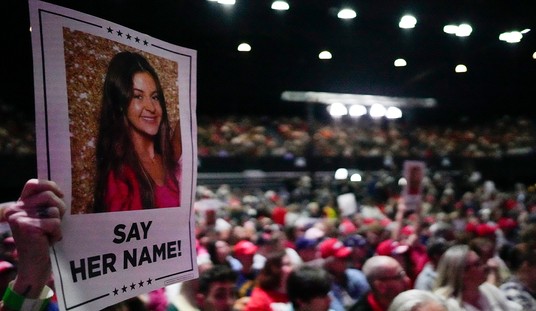Our own Bethany Mandel highlights the contrast in expectations placed upon African-Americans versus most everyone else when it comes to homophobia. Asking “Where Is It Still Acceptable to Be Homophobic?,” she points to attitudes expressed in the hip-hop community, a demographic breakdown of election results from California’s infamous Proposition 8, and an anecdote which indicates other minority groups get a free pass when criticizing homosexuality.
While the case for hypocrisy rests, what struck me as more troubling was the use of the word “homophobic” in reference to voting for traditional marriage or refusing to associate with homosexuals. This word – homophobic – has rapidly become an acceptable way to describe anything less than enthusiastic acceptance of homosexuality, which leads me to wonder. What is “homophobia” anyway?
We can get all etymological about it and break the word down to its constituent parts. Obviously, “homo” references homosexuality. “Phobia” means fear. So I guess a strict interpretation would be fear of homosexuals.
But that doesn’t really fit its dominant usage in the culture. How many people are actually afraid of homosexuals in the phobic sense? It does not follow that a vote against gay marriage indicates fear of homosexuals.
The rhetorical weight lent to the word “homophobe” places it on a connotative par with the word “racist.” Yet we would not call a racist a “blackophobe” or some such. While the racist may fear the object of his racism, fear does not define racism. Irrational beliefs about racial determinism define racism. The racist judges his race superior to another, and limits his assessment of individuals to racial stereotypes.
Are we talking about something similar when we speak of homophobia? Does the homophobe judge himself a higher order of human being than the homosexual? Does the homophobe limit their assessment of homosexual individuals to cultural stereotypes?
Undoubtedly, there are those who think homosexuals of lesser value than heterosexuals, or who rush to stereotypical judgment against homosexuals. Such thought and conduct proves as irrational and distasteful as racism.
However, we should distinguish between those negative attitudes and the kind of moral sanction which seems increasingly necessary to ward off accusations of homophobia. It’s one thing to expect acceptance of homosexuals as equal in their humanity and worthy of individual consideration. It’s quite another to expect celebration or endorsement of homosexual activity.
If we accept the connotative equivalence of “racism” and “homophobia,” then we must conclude that it is not homophobic to deny sanction of gay marriage, or to disassociate with homosexuals, or to believe and teach that homosexuality is a sin. Indeed, the same free association argument which fuels the movement for gay marriage necessitates tolerance of countervailing conscience.
Failure to love my blackness does not make you a racist. Likewise, failure to love homosexuality should not make you a homophobe.










Join the conversation as a VIP Member